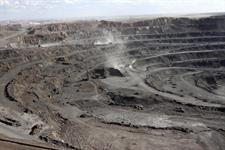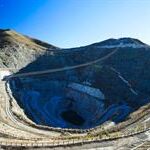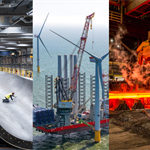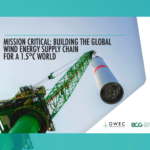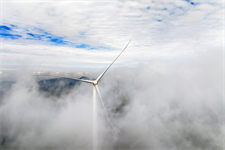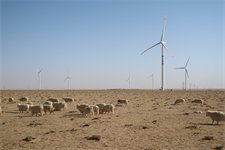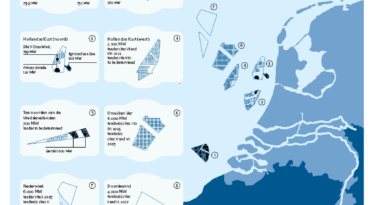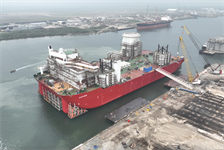EU’s Critical Raw Materials Act scope ‘too narrow’ for wind self-sufficiency
Energy Disrupter
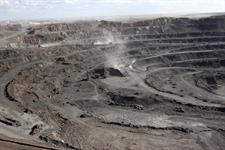
The European Commission wants to make all 27 EU member states more self-sufficient in the supply and production of critical raw materials that are essential for the wind industry and green energy transition with the CRMA.
The proposals would mandate at least 10% of the EU’s annual consumption of critical raw materials such as lithium, cobalt, and rare earth metals to come from extraction within member states. Meanwhile, 15% would need to be recycled inside the EU, while 40% of critical raw materials would need to be processing within the EU.
However, industry body WindEurope argued that a lack of similar rules for glass fibre — which is widely used to make turbine blades — was a blow to any moves to make EU members less reliant on imports for wind power equipment.
“The CRMA does not include glass-fibre fabrics. This is a very important component for wind turbine blades for which the European industry is heavily dependent on imports,” WindEurope stated.
“The wind industry is already working on it. It’s started using recyclable blades in the 342MW Kaskasi Kaskasi (342MW) Offshoreoff Heligoland, Schleswig-Holstein, Germany, Europe Click to see full details wind farm in Germany and will now install over 40 recyclable blades in the 1400MW Sofia (formerly Dogger Bank Teesside B) Sofia (formerly Dogger Bank Teesside B) (1400MW) Offshoreoff Yorkshire, UK, Europe Click to see full details wind farm in the UK. Despite these efforts the [European] Commission will have to do something to tackle Europe’s dependencies here as it is doing with the CRMA,” WindEurope added.
Strengthen self-reliance
The CRMA is one of a series of laws designed to promote renewable energy in the EU dubbed the European Green Deal.
WindEurope described the package of new legislation unveiled this week – which also included the Net Zero Industry Act, designed to drive manufacturing of clean energy technologies within the EU, and planned reforms to the EU’s electricity market – as a “timid step in the right direction” as it advocated greater support for the wind industry to meet high quotas of new wind capacity needed for the EU to meet its sustainability targets by the end of the decade.
The CRMA is designed to help EU members meet those demands by strengthening European self-reliance in critical raw materials while diversifying its supply.
It calls for member states to cut permitting timeframes for selected strategic projects for procuring raw materials. Under the regulation, extraction permits must be approved within 24 months, while recycling and processing permits must be approved within 12 months.
Member states will have to develop national programmes for exploring geological resources, and must also monitor their critical raw materials supply chain stocks. Certain large companies will also have to monitor their supply chains for strategic raw materials.
The European Commission also calls for the establishment of large-scale skills partnerships and an academy to promote skills relevant to the workforce for critical raw materials supply chains.
Member states will also need to adopt and implement national measures to improve the collection of critical raw materials waste and recycle it into secondary materials
Permanent magnets – included in wind turbine generators – should, “over time, contain an increasing amount of recycled materials”, according to the regulation. The European Commission added that it would introduce an act regulating this.
It also vowed to strengthen engagement with reliable partners outside the EU “to develop and diversify investment and promote stability in international trade and strengthen legal certainty for investors”, and set up a ‘critical raw materials club” made up of “like-minded countries willing to strengthen global supply chains”.
‘Must act fast’
Critical raw materials include rare earth metals like dysprosium and neodymium that are used to create the powerful permanent magnets that are an essential component of most modern wind turbines.
China currently dominates global production of rare earth materials, including dysprosium, which is used to make permanent magnets in wind turbine generators. China alone accounted for 98% of the EU’s supply of rare earth metals including dysprosium, neodymium and terbium in 2020, according to the European Commission.
To tackle this the law mandates diversifying the bloc’s supply chain of critical raw materials — setting a benchmark preventing reliance from a single country outside the EU for more than 65% of imports for “any strategic material” by 2030.
That figure strengthened an earlier, leaked draft of the legislation which proposed a 70% limit.
Jochen Eickholt, CEO of European manufacturing giant Siemens Gamesa, who has criticised China’s dominance of renewable energy manufacturing, urged a swift implementation of the CRMA.
“The Critical Raw Materials Act has the potential to foster the development of diversified responsible mining supply chains, which are indispensable for the European Green Deal. Such regulatory frameworks are important – we now need to act fast and enforce them,” he said.
Other groups meanwhile welcomed the proposed legislation.
“The proposals published today rightly emphasise the issue of securing resources for Europe. It is about strengthening the resilience of raw material supply chains. That is why strategic partnerships with like-minded third countries are of great relevance,” Germany’s federal association of energy and water management BDEW stated.
Additional reporting by Craig Richard

